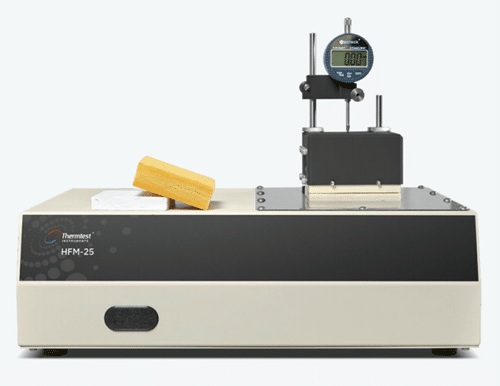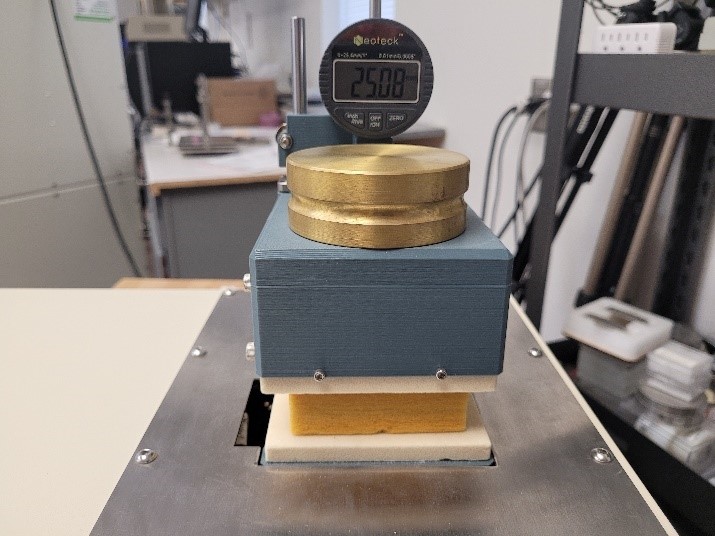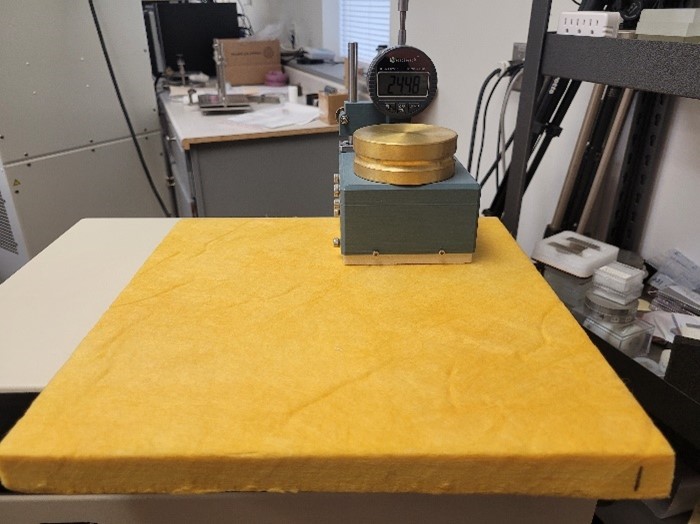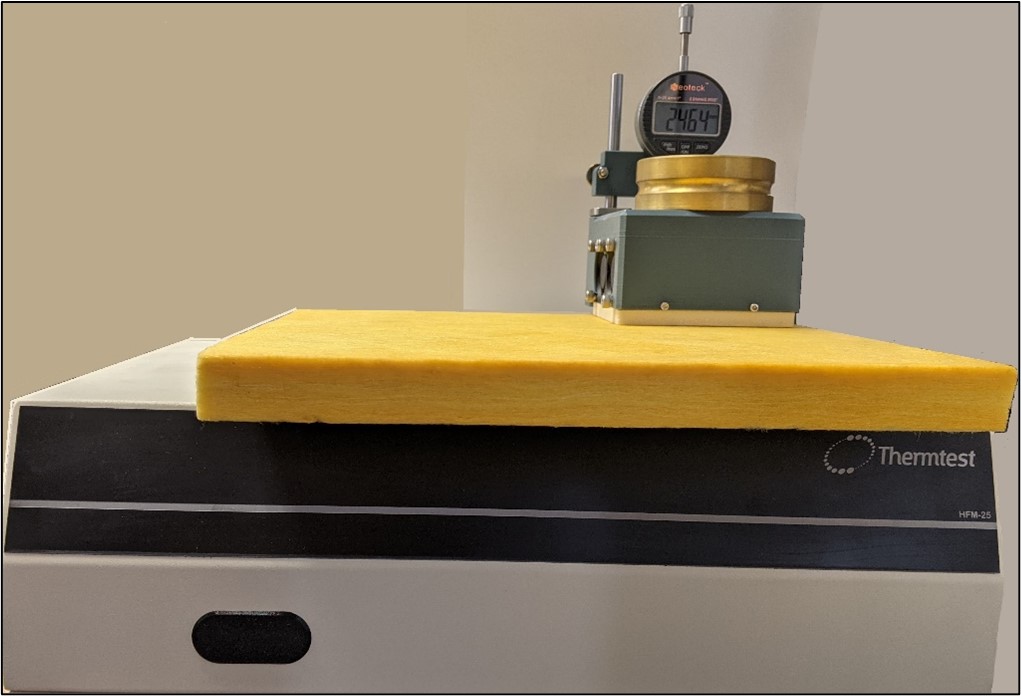The Heat Flow Meter (HFM-25) for testing thermal resistance and thermal conductivity of insulation and construction materials. Offering the testing power of a full-size heat flow meter, optimized for small insulation samples and budget. The HFM-25 is controlled by the included HFM Software, offering automation of calibration, testing, and results summary functions.

Picture 1. Thermtest 25 Series Heat Flow Meter.
Following international standards, the HFM-25 is designed for testing both homogenous and heterogenous materials from 0.01 to 0.5 W/m·K, and complies with ASTM C518. The HFM-25 allows for smaller sample sizes which are representative of materials typically found in insulation and construction industries. With an accuracy of 5% and reproducibility of 2%, the Thermtest 25 Series Heat Flow Meter is an excellent instrument for measuring the thermal conductivity of a variety of samples.
For small samples (min 50 x 50 mm), samples can easily be arranged for simple testing.

Picture 2. 50 x 50 mm piece of NIST 1450D
For larger samples (no maximum), samples can conveniently be measured at a specific location.

Picture 3. 300 x 300 mm piece of NIST 1450D
In this experiment, the homogeneity of reference material NIST 1450D was measured with the HFM-25. NIST 1450D is a high-density fibrous glass board. The steady-state method that the HFM utilizes is quite appropriate to analyze this type of material, due to its highly organized fibers through the thickness of the sample. In this case, the dimensions of the sample were 300x300x25mm. The four corners of the board were measured to analyze the homogeneity throughout the entire sample. The upper plate was set to 30°C and the lower plate to 10°C, obtaining an optimal temperature delta of 20 degrees.

Picture 4. Set up of the NIST1450D sample in the Thermtest HFM-25.
Table 1: Results of location based thermal conductivity measurements with the Thermtest HFM-25.
| Location of NIST1450D | Measured Thermal Conductivity (W/mK) | Relative Standard Deviation (%) |
|---|---|---|
| Corner 1 | 0.0305 | 0.98 |
| Corner 2 | 0.0301 | |
| Corner 3 | 0.0297 | |
| Corner 4 | 0.0299 |
With a relative standard deviation of less than 1%, the sample is shown to be homogenous.